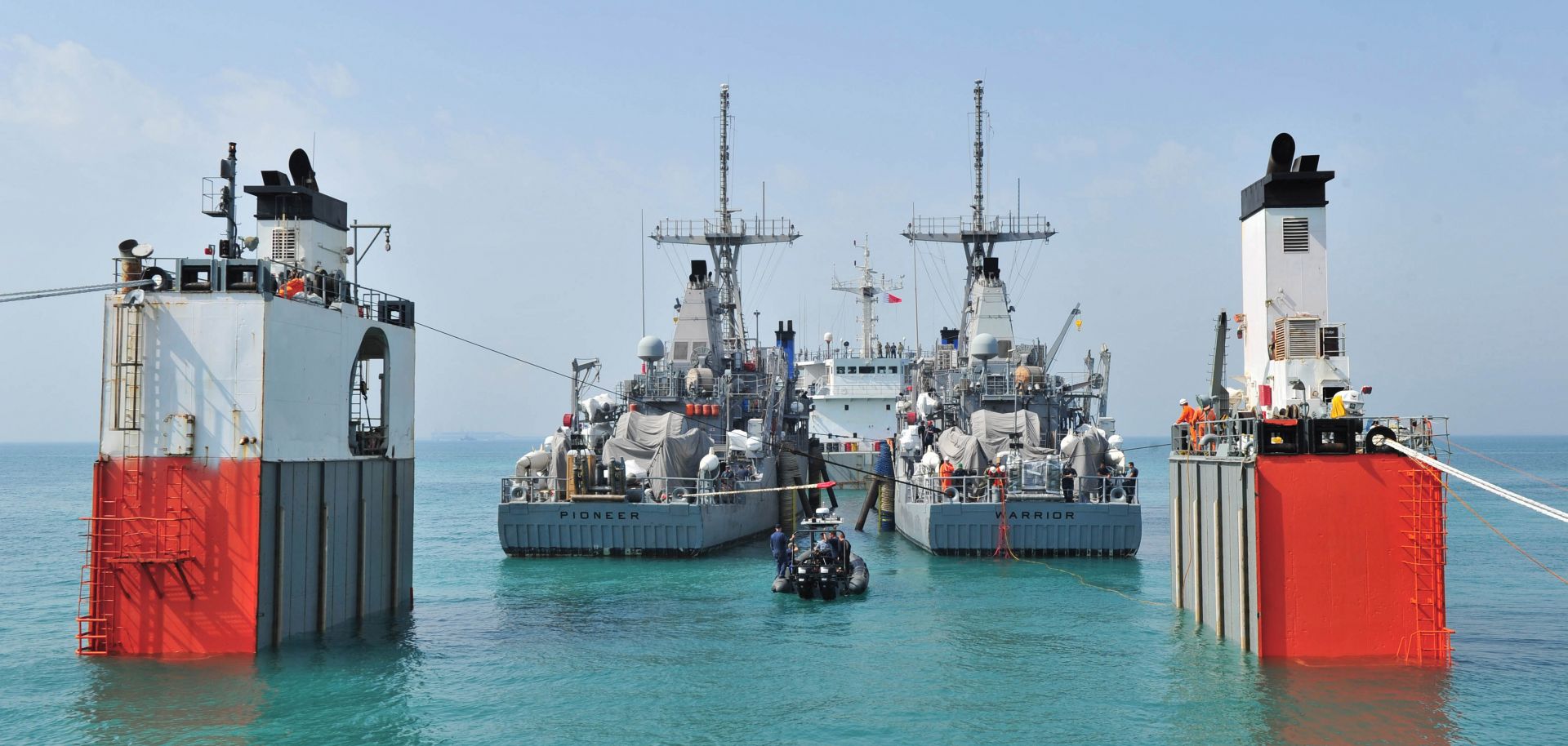
Bahrain's importance to the United States as a regional ally in the Middle East is inversely proportional to the kingdom's size. The country has a population of just over 1 million and is strategically located in the Persian Gulf. The United States has maintained a naval base in Bahrain since 1947, and the U.S. 5th fleet has been stationed there since 1995, along with numerous other U.S. naval forces. The United States has used facilities in Bahrain while conducting numerous operations, including those in Iraq and Afghanistan. Indeed, the U.S. relationship with Bahrain is in some respects as close as Washington's relationship with its NATO allies: In October 2001, then-U.S. President George W. Bush decided that Bahrain was entitled to purchase the same military equipment as NATO members.
The relationship is just as important for Bahrain, if not more so. Like its neighbor Saudi Arabia, Bahrain has depended on a close relationship with the United States for many decades. And like Saudi Arabia, Bahrain fears a Middle East in which Iran is able to project more power. Of all the Gulf monarchies, Bahrain has perhaps the most to fear from the sectarian battles that now define the Middle East. The Sunni al-Khalifa family has ruled Bahrain since 1783 when the Persians were ousted, but 70 percent of Bahrain is Shiite, and furthermore Bahrain's Shiite population has not fared as well economically as Shiites in other countries in the region. Bahrain has a history of social unrest and violent revolt from its Shiite population, as well as of broader social unrest, as seen in the 1960s and 1990s. All the Gulf Cooperation Council states are wary of Iran, but Bahrain is especially so. It accused Iran of supporting Shiite discontent in Bahrain in 2011, and in general it fears Iran will try to reassert itself in Bahrain.
Washington's traditional partners in the region — Egypt, Saudi Arabia and Bahrain among them — have been public about their displeasure that the United States is courting an understanding with Iran. In response, these U.S. partners are looking for new patrons. Egypt for its part is rekindling ties with an old friend: Russia. Russian President Vladimir Putin visited in February, Moscow agreed to supply Egypt with $2 billion worth of arms (financed by Saudi Arabia and the United Arab Emirates), and the two countries held their first joint naval exercise in June. Egypt is moving to diversify its military suppliers, inking deals with France, Germany and China in the past year. Saudi Arabia is also deepening its relationship with Russia; Deputy Crown Prince Salman was in Russia on an official visit to see Putin on June 17. Bahrain, too, has had recent dealings with Russia. The king visited Russia last October, and Russia's ambassador said June 19 that Russia was ready to offer Bahrain technical military aid.
Obama has made signing a deal with Iran his top foreign policy goal, and as a result the United States is involved in a careful dance, trying to reassure its long-time partners in the region while it pursues a good faith deal with Iran, the country many U.S. partners consider to be a looming menace. Nevertheless, the United States has lost some leverage with those partners; it is sacrificing a certain degree of closeness and influence in order to bring about a broader balance of power within the region.



